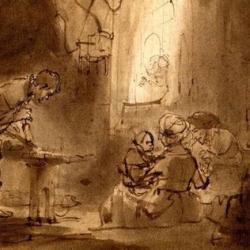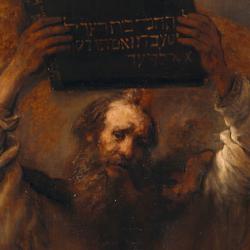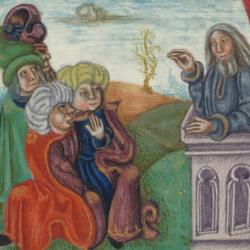On the far side of the Red Sea, Israel sings the Song of Moses, praising the God who “does wonders (Heb. pele’ )” (Exodus 15:11). It’s the first time the word is used, and from that point on praise of Yahweh’s “wonders” always evokes the exodus story.
The exodus connection is explicit in Psalm 77:11, 14, and even more so in Psalm 78:12: “He wrought wonders before their fathers, in the land of Egypt, in the field of Zoan.” Psalm 89 extends the exodus praise to the Davidic covenant: Yahweh has performed an exodus-like wonder if exalting David from the sheepfolds and giving him an everlasting covenant. The Davidic child of Isaiah 9:6 is a “wonder,” leader of a new exodus.
Echoes of exodus are less evident in other places, but hearing them helps us catch the overtones of some passages. Depressing Psalm 88:10, 12 asks whether Yahweh can do “wonders” for the dead in the land of the dark, but in the light of the exodus story that question has already been answered affirmatively. When David celebrates the “wonder” of the testimonies of Yahweh (Psalm 119:129), he recognizes that Torah institutionalizes exodus in that it embodies justice, mercy, and truth in the laws and statutes of Israel. Keep the wonderful testimonies, and your life is one of repeated exodus.










